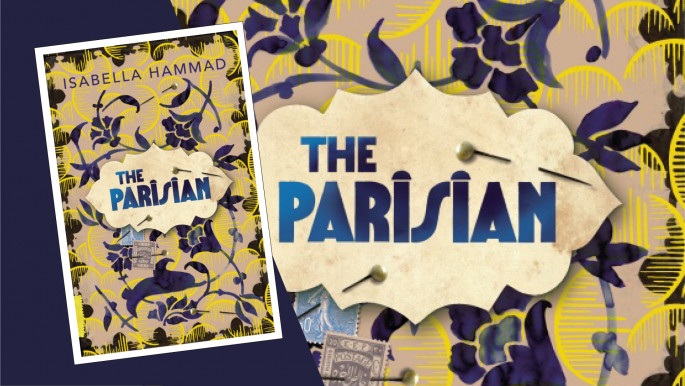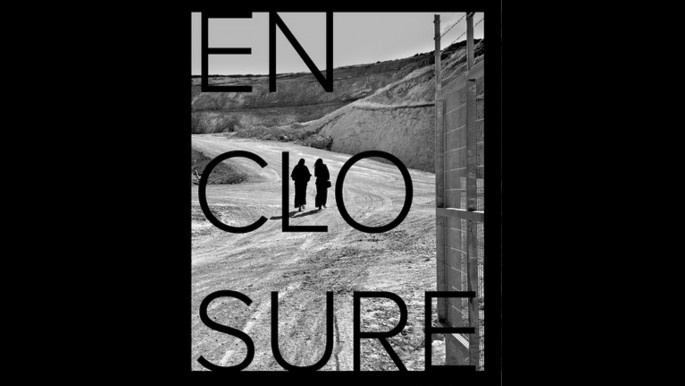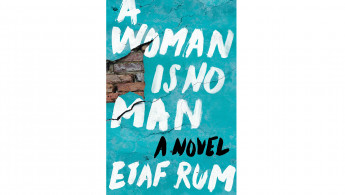A Woman is No Man: An intimate portrait of oppression across three generations of Palestinians
Etaf Rum's debut novel A Woman Is No Man has stirred up quite the buzz ever since its recent publication. Rum, who is the founder of the Instagram project @bookandbeans, is a talented new voice in the Palestinian-American community, and her first novel tells a heartbreaking story that is fraught with emotion and deals very subjects like domestic abuse, mental health and generational trauma.
The act of writing a story that deals with her culture's harmful and toxic patriarchy is something that brought the author "moments of fear and uncertainty".
In a letter to early readers, Rum also writes that her community had always told her about the limitations of her gender, but she later discovered this to be a strength, "I began to see the ways the women around me were unique from men, in their ability to juggle the demand of culture, family, relationships, and parenting."
 |
I began to see the ways the women around me were unique from men, in their ability to juggle the demand of culture, family, relationships, and parenting |  |
Similarly, A Woman Is No Man brings to us vivid female characters who are grappling with intense demands, though it doesn't leave much space for their personal endeavors, love or even enjoyment.
 |
|
| Read more from The New Arab's Book Club: The Parisian: The First World War through the eyes of a Palestinian |
In this novel, we meet three generations of Palestinian-American women who are constantly observed and dictated by traditional Arab culture, creating a social space within the narrative that feels claustrophobic and infused by the trauma of the characters.
From Birzeit to Brooklyn, the women in Rum's novel are living realities that uses the fact of their gender against them, forcing them into roles and limiting their experience in the world whether it's their own motherhood, education or the comforting act of reading.
The path of their lives is decided at birth; learn how to manage household chores, get married when you're young, bear children (preferably boys), and be a dutiful wife and mother at all times. There is no scope or space allowed for personal ambitions. Therefore, gender becomes the cause of their anxieties and challenges.
Rum's female characters are each going through the process of trying to fathom what it means to be a woman and how to survive the oppressive regime of patriarchal culture. Each of these characters is trying to navigate life as a female, a condition in their community marked by voicelessness, shame and devoid of notions of personal choice.
 |
Rum's female characters are each going through the process of trying to fathom what it means to be a woman and how to survive the oppressive regime of patriarchal culture |  |
Meanwhile, the men in their communities are raised on a higher pedestal, most often by the older women in the family. Rum's delicate storytelling reveals the complicated gender-dynamic that develops as a result of the unhealthy disbalance between the genders. Mental health also plays a major role in this disbalance, as the trauma of the past is left unaddressed. The author highlights the denial and neglect that exists in the community, specifically through characters who would rather believe that it is the djinn that causes problem, rather than actual mental health issues.
The stories of Isra and Deya – the two major perspectives in the novel – are separated by many years, and both come from very different backgrounds (though they are mother and daughter), but they're dealing with the same cultural demons.
The two characters' stories demonstrate that America is just another land where the hold of patriarchy can prevail over women. Coming to or being born in America does not automatically grant a person liberation, unlike what the popular narrative surrounding the country wants people to believe. Geography plays no role in freedom, for it is a condition that can not be given to a female, for she has to fight for it.
 |
|
| A Woman Is No Man is Etaf Rum's debut novel |
Isra moves to America in the 90's as a newly married 17-year-old, a major life change that she has no choice in. She hopes that America, being a liberal country, will be the place where life will be different, where women will have more respect, despite her mother's warning that "…no matter how far away from Palestine you go, a woman will always be a woman.
Here or there. Location will not change her naseeb, her destiny." And as the years go by, Isra begins to finally understand the woman her mother is, while thousands of miles separate them, and in her spare time writes letters that she never sends.
Deya's story, set around 2008, represents the struggle of a teenage girl to gain agency in a community that has constantly tried to force her into a biased, gendered reality. Her story is, hopefully, the first of many that inspire this change in the lives of young women who are constantly stifled because of their gender, at the hands of their own families.
Rum's apprehensions about writing a novel about patriarchy and the physical, emotional and psychological abuse that comes with it are very valid for an author in today's times when the Arab and Muslim cultures, and especially men in these communities, are constantly demonised and lazy stereotyped to look oppressive and violent.
It's a difficult kind of story to tell, not simply because of how traumatic of a process it can be for a writer to create a story of abuse, whether from their own experiences or imagination, but also because it comes with the danger of painting an entire community or way of life with the same colour.
 |
Geography plays no role in freedom, for it is a condition that can not be given to a female, for she has to fight for it |  |
In this regard, Rum's narrative exhibits an excellent distinction that is not often seen in similar stories; the author draws a division between culture and religion, two ideological systems that are so often overlapped that people begin to believe that it is a religion like Islam that causes women's oppression.
Deya, during an Islamic studies class, compares what she's being taught in school to what she experiences at home, and her conclusion indicates the source of women's oppression in traditional communities, "…most of the rules Fareeda held highest weren't based on religion at all, only Arab propriety."
Fareeda (Isra's mother-in-law and Deya's grandmother) is a complicated character in the story who is at times very difficult to sympathise with because of her treatment of Isra and her daughters. But as the story goes on, and the reader gets access to a larger picture of Fareeda's life, it becomes apparent that Fareeda, despite all her shortcomings, is a woman who is simply performing the role that she had been handed down from the very beginning of her life.
 |
|
| Read more from The New Arab's Book Club: Enclosure: Palestinian Landscapes in a Historical Mirror |
She represents all those women who, unwittingly and often under pressure, become cogs in the wheel of patriarchy, for they don't have access to any other kind of life and they have to survive within that domain. When Isra is shamed for not giving birth to a son, Fareeda remarks, "It had always been this way… It might not be fair, but she didn't make the rules. It was just the way it was. Isra was no exception."
In A Woman Is No Man, Rum unpacks the troubles that are brewing within a culture that have to be contested and challenged, because we're living in a time where women are, through their education and female solidarity, becoming empowered enough to realise that patriarchy needs to be broken down and rejected.
In writing about the unaddressed traumas of the past, the author presents a context for the abuse inflicted by men, "She knew that the suffering of women started in the suffering of men, that the bondages of one became the bondages of the other. Would the men in her life have battered her had they not been battered themselves?"
While the shared trauma of the nakba (the Palestinian massacre of 1948), and the trauma of displacement that has followed, is not an excuse, it does offer a context in which the brutality that sometimes manifests within the culture can be understood.
The narrative would have benefited if the male perspective, especially that of Khaled or Adam, was given some space because there are definitely hints of complexities in these characters, like their alcoholism. While men often abuse the privilege that comes with their gender, there is always a story and no person is wholly good or evil.
While A Woman Is No Man is a well-written debut, it is a little repetitive at times. In the midst of a narrative that explores some heavyweight themes like cycles of abuse and trauma, toxic misogyny that gets suffocating, and the complicated institution of arranged marriage, the novel also offers brief moments of respite through the relatable nuggets and moments during which Isra explores her bookish side and carves out a little time to read during her busy days, or when Deya meets the mysterious owner of the bookshop Books and Beans.
Etaf Rum has written a powerful story, one that feels familiar because so many stories exist about women's oppression, but this particular narrative is an offering of strength to Palestinian women who are dealing with traumatic aspects of their culture.
A Woman Is No Man is about two women trying to be true to themselves in a culture that tells them it has already decided what their lives should be. Despite all the trauma that is packed within the pages of Rum's book, there is hope at the end of it all.
Sumaiyya Naseem is a Bookstagrammer and freelance writer and editor who specialises in Middle Eastern and Muslim stories. In 2019 she joined the Reading Women Podcast as a guest contributor to talk about South Asian and Middle Eastern narratives.
Follow her on Instagram: @sumaiyya.books
The New Arab Book Club: Click on our Special Contents tab to read more book reviews and interviews with authors:



